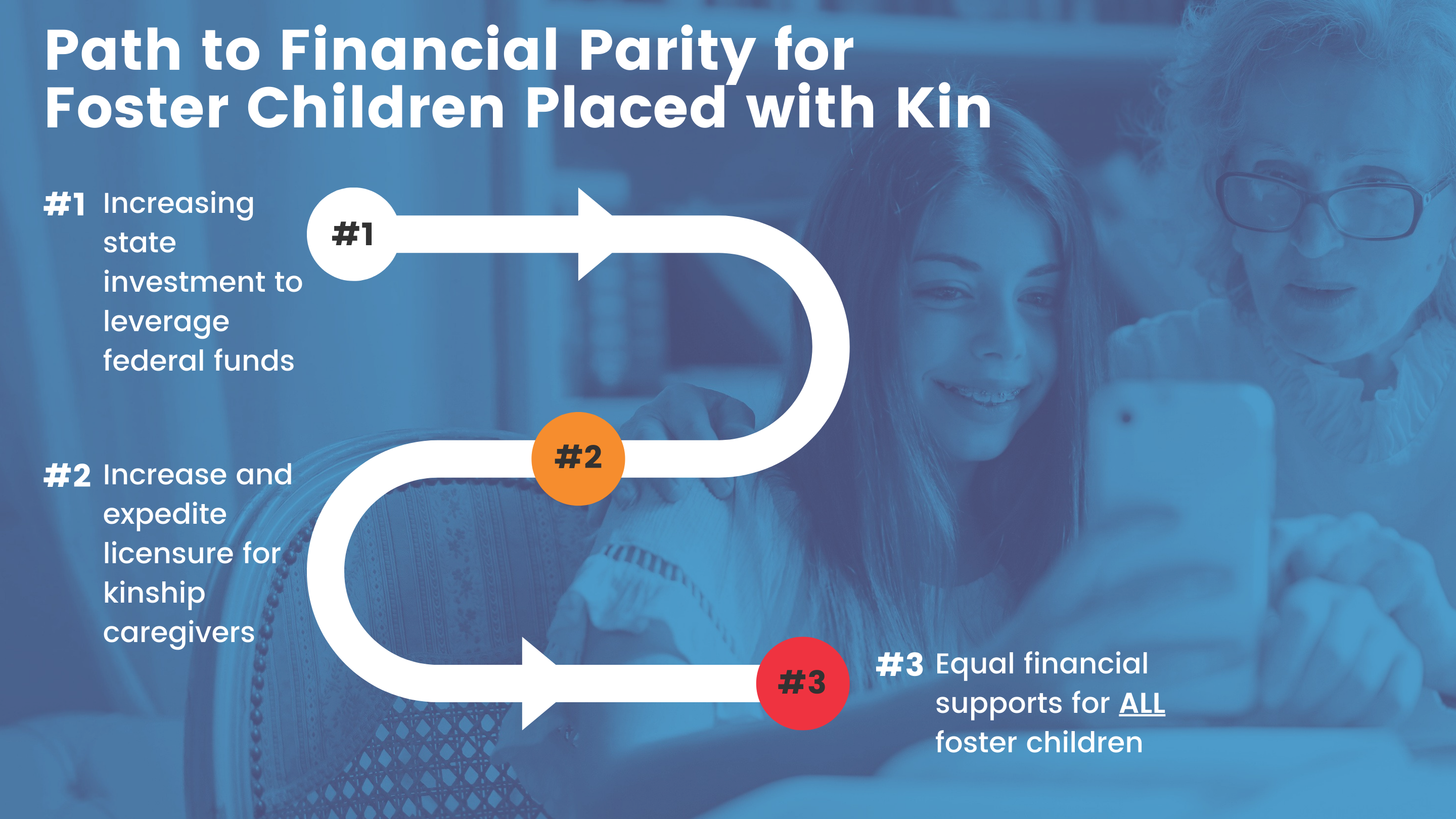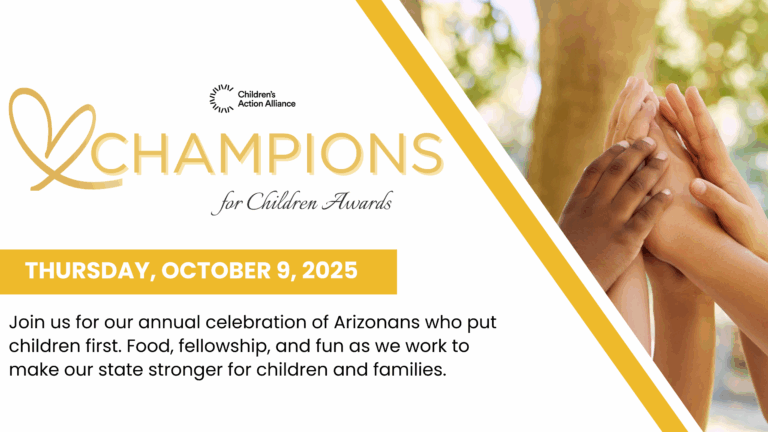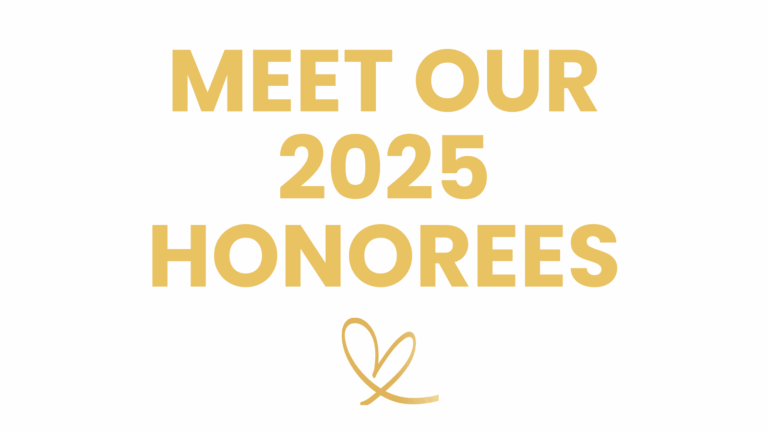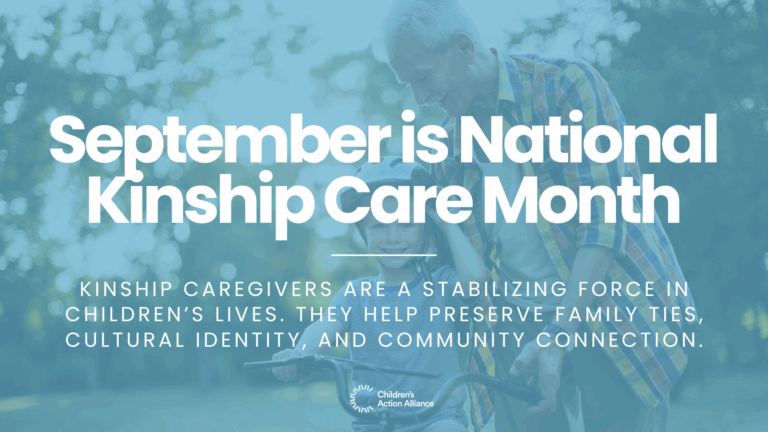
Governor Proposes Pathway to Parity for Foster Children Placed with Kin
In his State of the State address, Governor Ducey unveiled a proposal to significantly increase the supports provided to foster children placed with kin and to put them on a pathway to receiving the same level of financial support provided to children placed with non-relatives.
Kinship foster care is a best practice, mitigating the trauma of parental separation and leading to better outcomes for children. Arizona utilizes kinship foster care at a much greater rate than the national average of 32%. As of June 2021, 52% of all children in DCS’s custody were placed with a relative. However, the state has not provided these children with adequate financial supports. A foster child who is placed with an unlicensed relative is provided with a monthly stipend of just $75 a month. If that same foster child were placed with a non-relative foster parent, they would receive, on average, $641 a month.

There are two key components to achieving full parity for children in kinship foster care:
- Increasing state funding to a level that will equal the state’s share of costs once Arizona is able to draw down federal funding for more foster children placed with relatives, and
- Increasing the number of kinship caregivers who become licensed as foster parents, a prerequisite for leveraging federal funding.
The Governor’s proposal addresses both components simultaneously. The Executive Budget and HB 2274 (Weninger) seek an appropriation of $24.4M to provide foster children placed with kin with a monthly stipend of $300 a month. This 300% increase will immediately help kinship foster caregivers better meet the needs of the children in their care and brings the state investment up to the level needed to leverage federal funding. At the same time, DCS is putting a number of policy and practice changes in place to remove barriers to kinship licensure and expedite the process, including seeking a change to statute (HB 2084 Osborne: Udall) that will streamline background checks for kinship caregivers who have already met required safety standards. By taking these two leaps forward, foster children placed with kin will have the supports they need in the placements where they can best thrive.
Please support these CAA priority bills by joining us and Arizona Grandparent Ambassadors and Kinship Caregivers for a week of (virtual) action, beginning February 14th.




